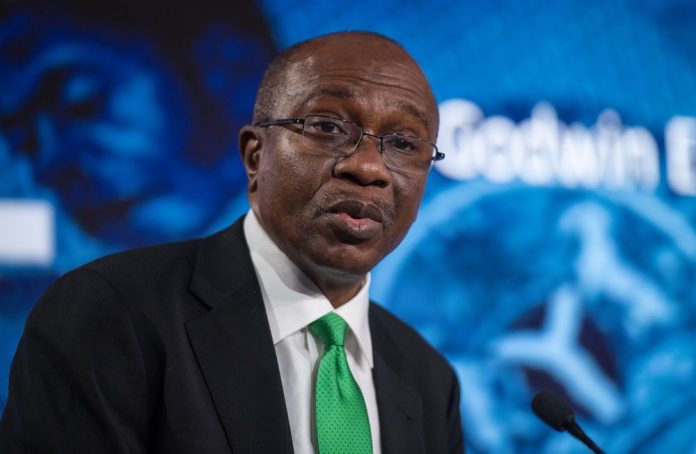President Muhammadu Buhari has approved the investment of N50 billion for revalidation of Nigeria Commodity Exchange (NCX) as Central Bank of Nigeria’s 59.7 per cent majority shareholding stake in the exchange.
Buhari also asked that the planned privatisation of the commodity exchange be stopped forthwith given what is seen as the unfortunate arbitrage opportunities which the government said (it) has noticed in the private sector arrangement, a situation the government said has become an obstacle in moderating food prices in Nigeria.
CBN governor Godwin Emefiele made the statement yesterday at the meeting of the steering committee for the repositioning of the Nigeria Commodity Exchange (NCX) to discuss modalities for developing the strategic execution plan for the repositioning of the exchange in Abuja.
In his presidential approval for the revitalisation of the NCX, Buhari said the N50 billion investment by the central bank will enable the bank implement far reaching measures, which includes reconstitution of NCX’s board and board committees, appointment of chairman by the CBN, and an investment of at least N50billion through the CBN-initiated infrastructure company (InfraCo) structure.
The CBN, as majority shareholder of NCX will collaborate with Nigeria Sovereign Investment Authority (NSIA) and Africa Finance Corporation (AFC), under the Infraco Structure, to develop and implement a strategic repositioning plan for the NCX to make the NCX an efficient world class Commodity exchange.
The move is to address the challenges within the Nigerian agricultural commodities value chain in order to accelerate investment and productivity in the sector. Emefiele mentioned poor infrastructure and logistics which impede the movement of produce from farm to market and/or processing centers; limited storage and preservation facilities; lack of adequate liquidity to support off-take of agricultural goods; unavailability of pricing information to market participants and activities of middlemen as some of the challenges facing the sector.
“There is no doubt that an effective and efficient commodity exchange ecosystem has a critical role in achieving the aforementioned objectives, through its provision of an organized platform for farmers to trade products in a transparent and efficient market,” he stated.
The CBN governor said the Nigerian Commodity Exchange has not been able to catalyze agricultural production due to several structural and idiosyncratic challenges which include: limited funding and investment, poor financial performance, efficiency in physical infrastructure (warehouses, laboratories, grading capability) And inadequate warehouse receipts and logistics infrastructure.
CBN is expected to engage the Nigeria Postal Service on possible utilisation of its assets to develop model warehouses across the federation, according to the presidential approval.


